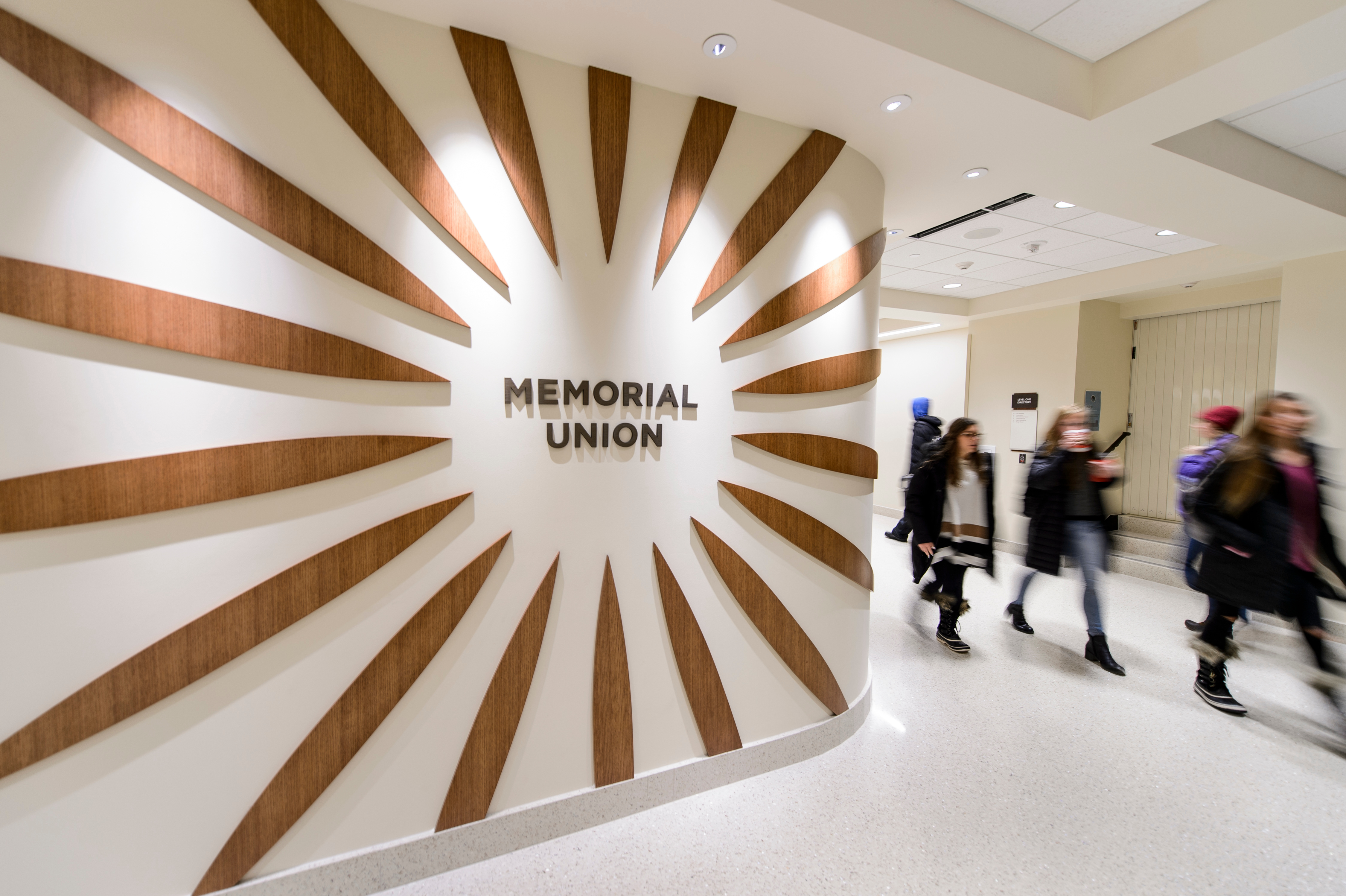After a busy summer, Wisconsin Union tackles numerous initiatives to ensure a welcoming environment

As Memorial Union celebrates its 90th anniversary this fall, several efforts are underway to build on its legacy of inclusiveness and that of Union South, its newer companion.
More than ever, students will help shape the future of Wisconsin Union programming through their work on these efforts, according to Mark Guthier, director of the Wisconsin Union, the entity that operates the two sites.
“We have a lot on our plate this academic year, including some big, philosophical issues to work through,” Guthier says. “As has always been the case throughout the history of the Wisconsin Union, this work will be largely student-led and student-driven.”
Among the major items on the to-do list:
- Determine the mission, guiding principles and location of a new social justice incubator space expected to open early next year.
- Draft a policy to guide decisions on the naming or renaming of Wisconsin Union spaces.
- Begin planning long-term for how Wisconsin Union programming can support and amplify the major campus history project announced last spring by Chancellor Rebecca Blank. The project, recommended by a study group that researched the history of racial and religious bigotry on campus, will identify and give voice to those who experienced and challenged prejudice on campus.
Students guide the work of Wisconsin Union in several ways: they serve on the Wisconsin Union Directorate, a student programming board whose 10 committees and six clubs plan, promote and manage more than 2,400 events each year; they make up nine of the 15 members of Union Council, the governing body of the Wisconsin Union; and they are among the members of the five advisory boards that make recommendations to Union Council.
Much of the work students will undertake on the new initiatives this year will flow from decisions made last spring and over the summer by Union Council. The council voted in August to rename the Porter Butts Gallery and the Fredric March Play Circle, student programming spaces in Memorial Union.
Both men for whom the spaces were named were UW–Madison alumni who went on to illustrious careers — March as an Academy Award-winning actor and anti-McCarthyism activist, and Butts as the founding director of Memorial Union and a revered figure in the national college union movement. Before their professional accomplishments, they were undergraduates at UW–Madison and members of university fraternities. Their fraternities nominated them to be members of an honorary interfraternity society called the Ku Klux Klan.
Over the summer, Union Council members reviewed archival information about the two men and took testimony from dozens of students and community members. No information was found that connects the interfraternity society to the national Knights of the Ku Klux Klan or to a racist ideology. However, the reason for the name remains elusive.
In consideration of the impact on students and other community members of affiliation with any organization called the KKK, the council voted for the renaming. The vote came after Porter Butts’ daughter, Sherrill Butts Randall, suggested that, in the spirit of healing and inclusion, her father’s professional accomplishments be acknowledged in a non-programming space at Memorial Union. She believes that her father would have supported this decision, since he promoted policies of nondiscrimination and mutual understanding during his long career in Madison and as a national leader in the organization of student unions.
The spaces in Memorial Union have reverted to their original names: the Main Gallery and the Play Circle.
A resolution passed by Union Council on Aug. 6 commits to recognizing Porter Butts’ achievements through an interactive kiosk that would be completed by the end of the 2018-19 academic year. A team of students, staff and Wisconsin Union Association trustees will develop the content.
The debate surrounding the renaming issue unfolded alongside a proposal for a social justice incubator, which Union Council endorsed in April. More about the incubator will be determined in the months to come, Guthier says, but, in general, it will be a place for students to collaboratively pursue ideas that could help address some of society’s most intractable problems.
Additionally, the Wisconsin Union commissioned a study last spring to examine the extent to which students find Memorial Union and Union South to be inclusive. The results of that study are expected to be released later this semester and will inform future programming and facilities decisions.
All of these efforts speak to the ultimate goal of making sure everyone feels truly welcome at Memorial Union and Union South, says UW–Madison senior Mills Botham, president of the Wisconsin Union.
“To me, the Wisconsin Union is the heart and soul of this campus,” Botham says. “Our unions should be – must be — places where everyone feels safe, valued and at home. If there are those who feel otherwise, then we’re not fulfilling our mission.”
Students interested in being part of the Wisconsin Union Directorate can find more information at union.wisc.edu/wud or email the Wisconsin Union at union@union.wisc.edu. Students wishing to provide input on any of the matters before Union Council or who are interested in serving on an advisory board can email Botham at president@union.wisc.edu.
Tags: diversity, student life, Wisconsin Union



